How to store cigars without a humidor becomes the first real concern once you start buying cigars with the intent to enjoy them slowly, not all at once.
A cigar left out on a shelf or desk, even in a plastic wrapper, will dry out quickly, losing the oils and structure that make the entire smoking experience worth it in the first place.
Most beginners do not own a humidor, and there is no need to rush into one. There are other ways to preserve the aroma, and we will now present the best solutions, including some key cigar accessories.
What Happens When Cigars Dry Out?
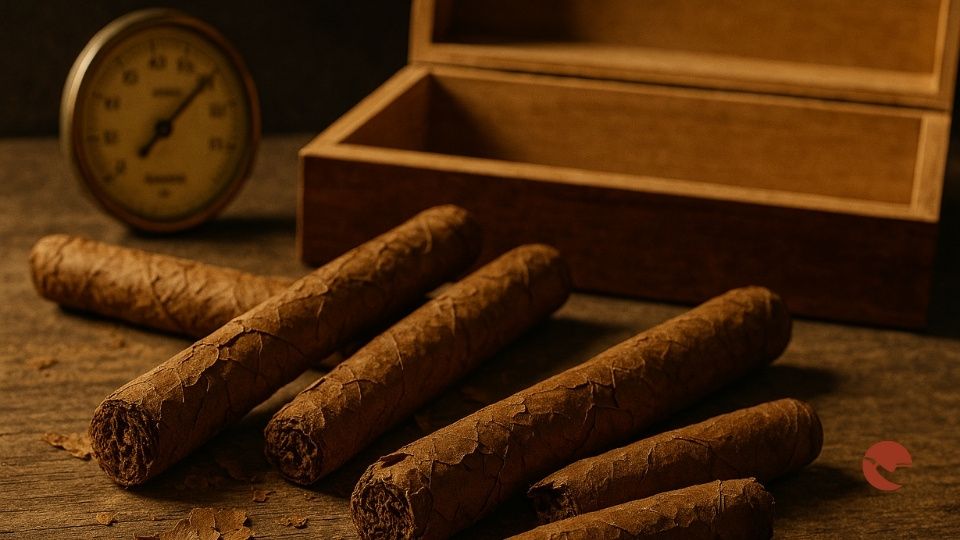
Cigars are made with natural tobacco leaves that depend on controlled humidity to stay fresh. Once they begin to dry, everything that makes them enjoyable starts to break down.
The wrapper leaf becomes stiff and fragile, often cracking or splitting before you even light the cigar, which leads to uneven burn and harsh flavor.
The oils inside the filler tobacco begin to fade, and that changes the flavor completely. Instead of getting smooth, balanced smoke, you get bitterness, sharp edges, and uneven burn.
When a cigar loses too much moisture, it also loses structure. It burns too hot, the draw becomes inconsistent, and the ash turns flaky and messy.
View this post on Instagram
Even the best cigars can taste harsh and strong once dried. The balance of flavors-cedar, cream, nuts, or sweetness-goes flat or disappears completely.
Keeping cigars fresh without a humidor starts with sealing out dry air. A small container with a humidity source works better than leaving cigars loose in a drawer.
No repair method can bring a dried cigar fully back to its original form, which is why smart storage always comes first.
How Long Can Cigars Last Without a Humidor?
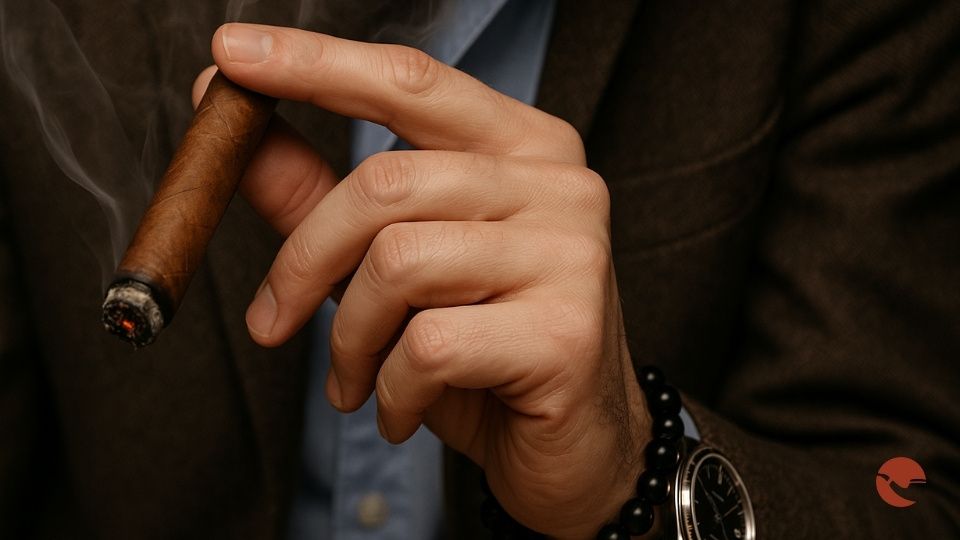
Cigars are not built to survive dry air. Once exposed, they begin to change within hours. The goal is to understand what happens in different conditions and how much time you really have before quality drops.
Some setups offer a few days. Others can stretch freshness for weeks. Each situation works for a different need.
In Open Air Without Protection
Leaving a cigar out on a desk or shelf is the fastest way to ruin it. Even in a calm room with average humidity, a cigar starts to lose moisture in the first 24 hours.
After 48 hours, the wrapper feels tight and dry. Within 3 days, flavor loss begins, and the burn becomes uneven.
What to expect:
-
1 day: still smokeable but already drying
-
2-3 days: starts to stiffen and lose aroma
-
After 3 days: major drop in flavor, draw, and smoothness
Use only if: you plan to smoke that day or the next day
Inside a Plastic Wrapper
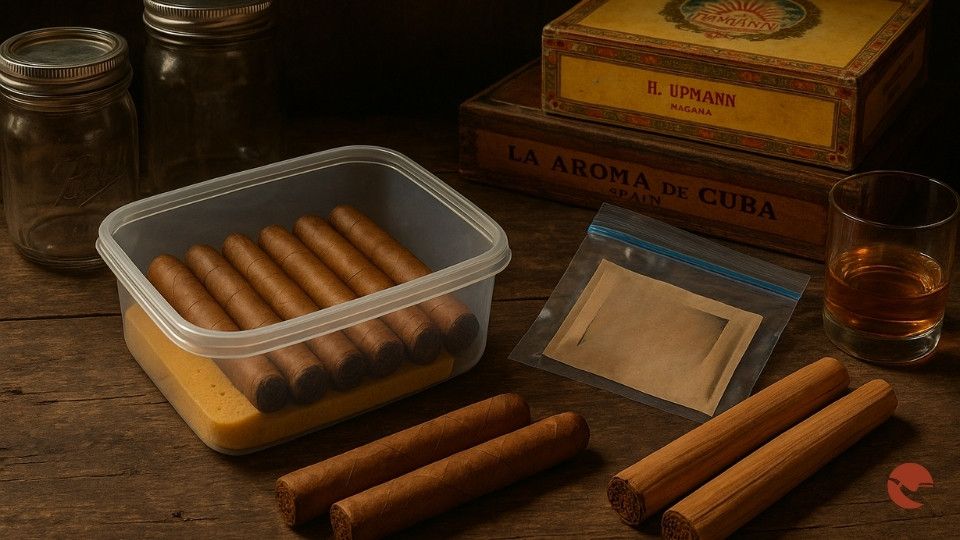
A cellophane wrapper slows down drying, but it does not block it completely. Many cigars come in plastic, and beginners often think that keeps them safe.
That is only partly true. The wrapper holds some moisture but lets air through.
Estimated timeline:
-
3 to 5 days: decent condition
-
1 week: feels lighter, wrapper may tighten
-
After 10 days: starts to dry fully
Good for: holding cigars during short travel or brief storage
Sealed in a Plastic Bag Without Moisture
.jpg)
Putting cigars in a ziplock bag helps more than people think. It traps moisture already inside the cigar and slows down evaporation.
But without a humidity source, that storage only buys time.
Average freshness span:
-
4 to 7 days: flavor stays close to original
-
8 to 10 days: outer leaf begins to dry
-
After 10 days: noticeable change in aroma and burn
Works for: people who smoke within the week
Sealed in a Bag or Box With Humidity Pack
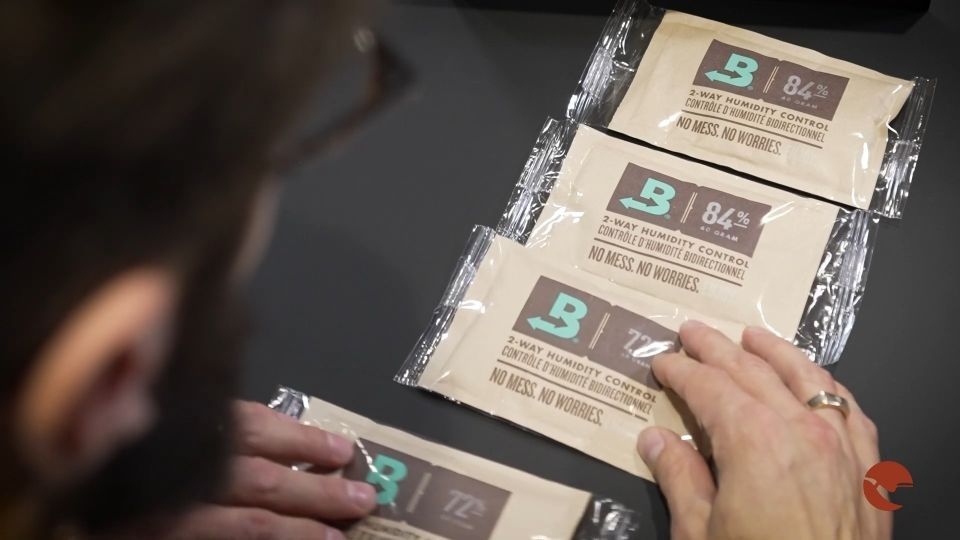
Adding a humidity pack changes everything. The inside air stays stable, and cigars hold their softness.
Even a small Boveda pack inside a ziplock or food container can protect cigars for weeks or longer. That setup gives a beginner the best way to store cigars without a humidor.
Typical timeline:
-
2 to 4 weeks: ideal storage
-
1 to 2 months: still fresh with minimal change
-
After 2 months: pack begins to dry out, quality depends on air exposure
Use for: daily storage, short aging, or collecting cigars over time
In a Jar or Tupperware With a Moisture Source
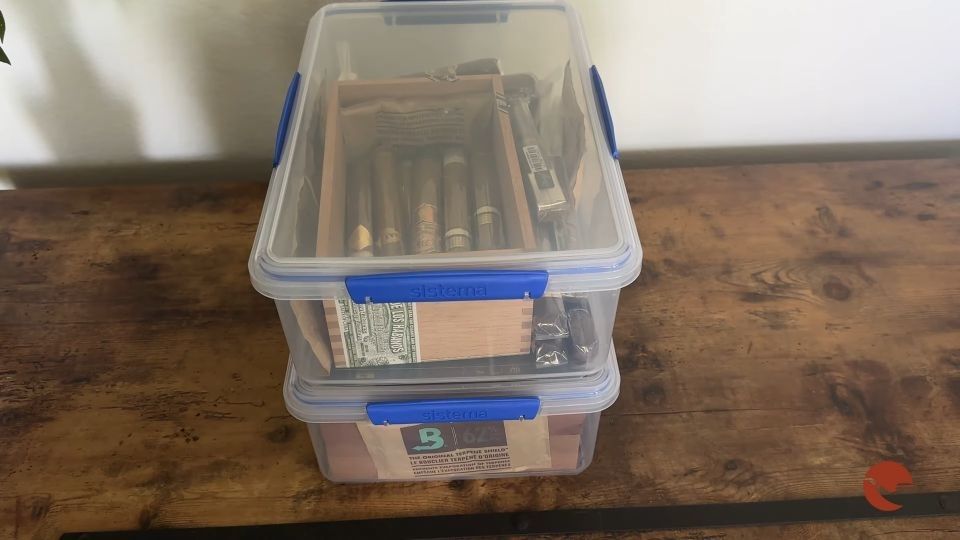
A sealed jar or plastic container with a sponge or humidity pack offers real storage power. It works just like a basic humidor when used correctly.
That makes it one of the best options for anyone who wants to store cigars without spending extra money.
How it holds up:
-
1 to 2 months: cigars stay fresh with no drop in quality
-
3 to 6 months: fresh if humidity stays balanced
-
After 6 months: change humidity pack or re-moisten sponge
Important note: the sponge should be checked at least once a month. The wetting element should be replaced every 3 months for consistent results.
Ideal for: new smokers who keep cigars on hand for regular use
Watch the Signs Before It Is Too Late
Dry cigars do not hide their condition. A light press should give you slight softness, not a brittle snap.
Once the wrapper begins to crack or peel, and the foot crumbles at the edge, that cigar has already passed its best stage. Any loss of flexibility is a clear signal that moisture has dropped too far.
Paying attention to storage time prevents those problems before they begin.
Essential Accessories for Keeping Cigars Fresh Without a Humidor
Cigars need protection not only at home but also on the move. For beginners without a humidor, travel accessories can keep cigars in smoking condition for days-sometimes longer-if packed right.
Use a Proper Travel Case
A well-built case helps preserve cigars when a full humidor is not an option. Hard cases like the ones from Lubinski keep cigars secure, firm, and protected from outside air.
Some models carry two to four cigars and seal tightly enough to hold humidity. With a small humidity pack inside, they can maintain cigar quality during travel or short storage.
Carry More with a Flexible Cigar Bag
When space matters, a structured soft bag does the job. Options like the Lubinski cigar bag hold several Toscano or Cuban sizes, with internal spacing to avoid pressure damage.
Add a humidity pack, and it performs like a portable humidor-ideal for weekends or rotation between locations.
In the End, a Humidor Is the Best Solution
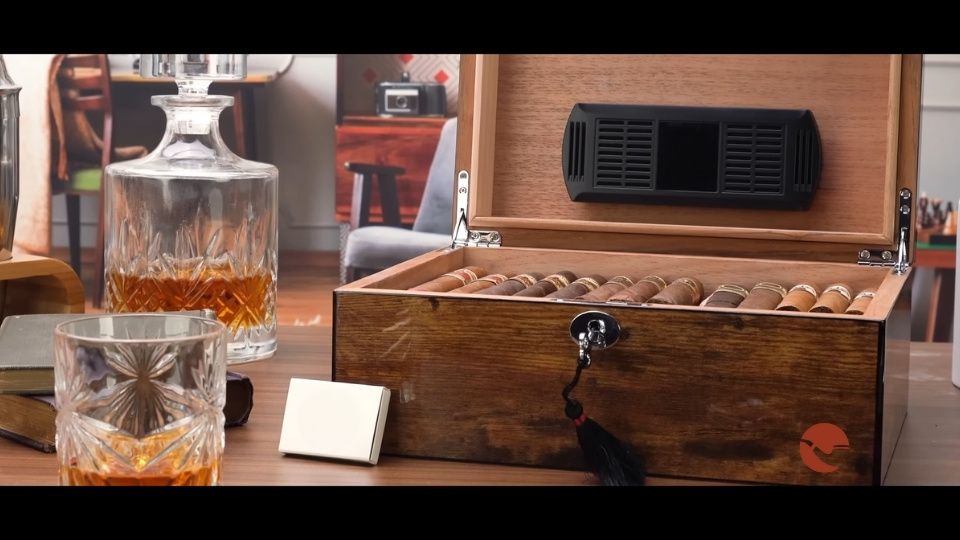
Temporary storage methods work for a short time, but none of them can match the consistency, control, and protection that a real humidor provides.
A sealed bag or travel case may keep cigars fresh for several days, and a container with a humidity pack might stretch that into weeks, but both depend on routine checks, tight seals, and careful handling.
Cigars are sensitive to moisture shifts. Even small changes in humidity can affect the draw, damage the wrapper, or flatten the flavor completely.
When cigars stay in a space with stable conditions, their character holds, their aroma deepens, and their structure stays perfect for as long as you need.
A proper humidor solves those problems without effort. Instead of patching together stopgap fixes, you place your cigars in a box built to hold the exact level of moisture they require.
Lubinski offers a wide range of humidors. Models like the Lubinski-25 provide solid storage for medium-sized collections. Larger boxes such as the Lubinski 50-count offer more space for growth without extra maintenance.
If you prefer a setup with everything included, the humidors with built-in accessories help track humidity with precision.
For those who travel, a compact humidor designed for five cigars provides real control in a portable size. Each model works without overcomplication and protects cigars far better than any short-term option ever will.
